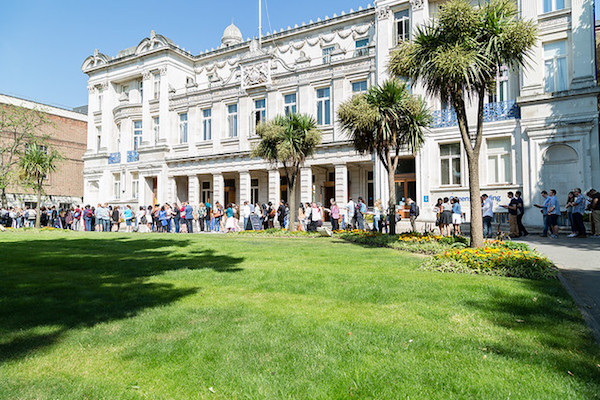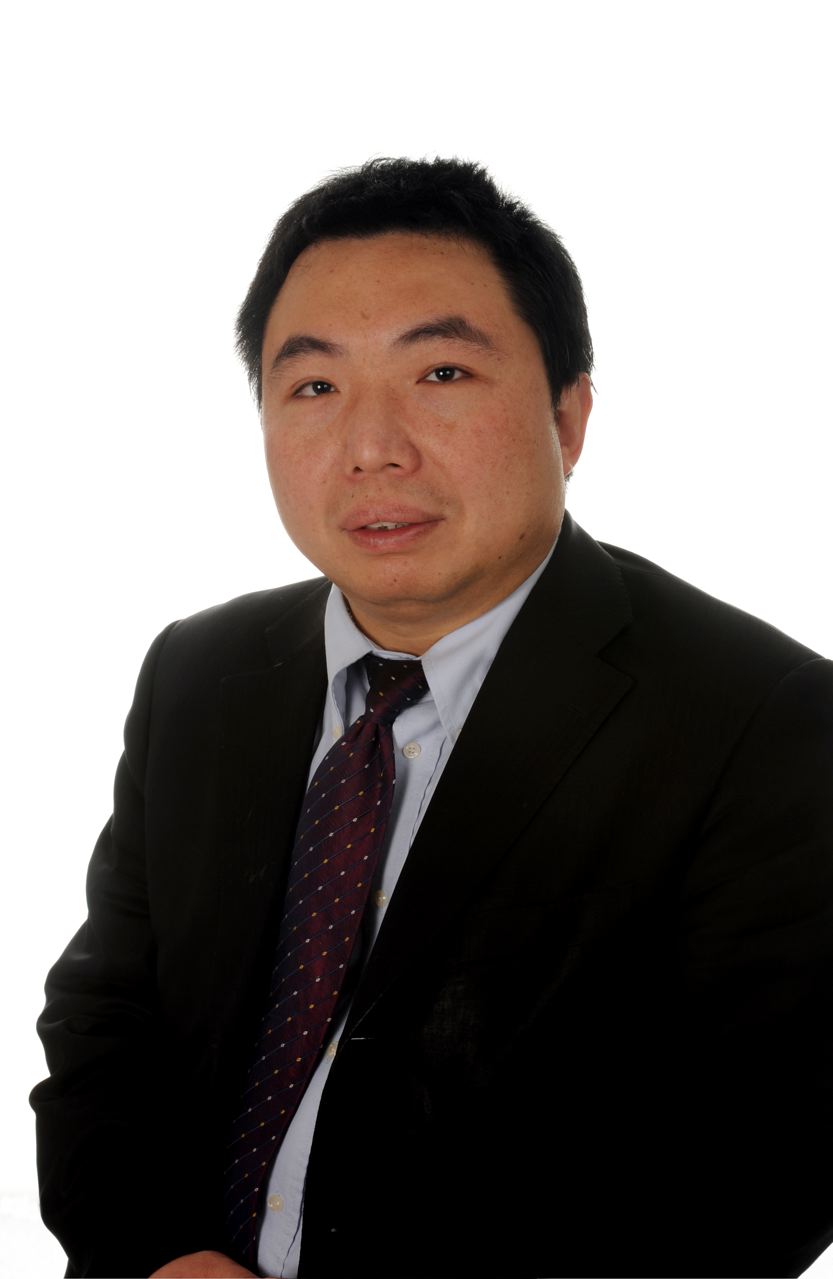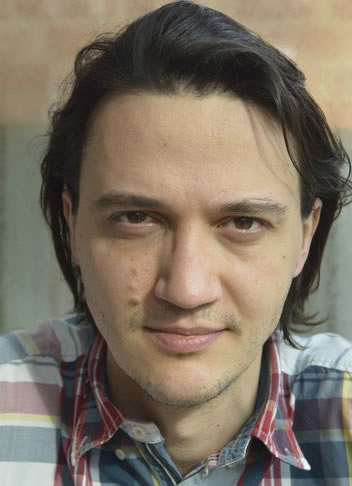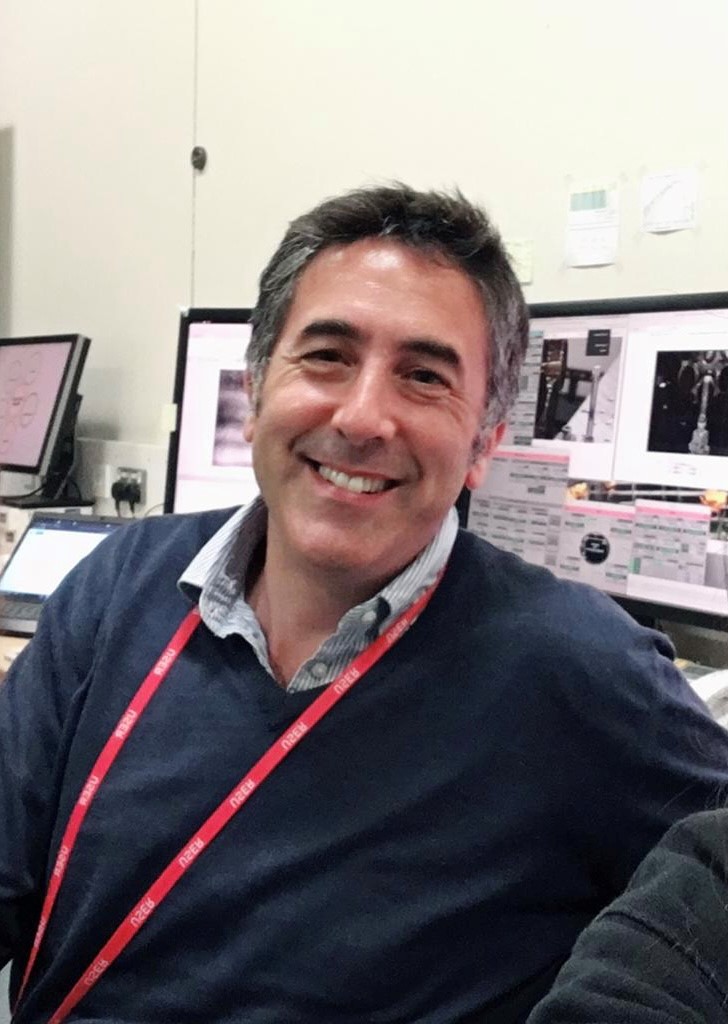Study options
- Starting in
- September 2025
- Location
- Mile End
- Fees
- Home: £12,850
Overseas: £29,950
EU/EEA/Swiss students
What you'll study
The need for new global supplies of affordable, sustainable energy is perhaps the greatest single challenge facing the world this century. As a result, there is an increasing demand for specialists in sustainable energy.
On this MSc course, you’ll be at the forefront of innovation in this field. We’ll build on your existing expertise to give you a sound knowledge of the principles behind existing sustainable energy systems, including wind and solar energy, biofuels and energy storage technologies. You’ll also gain the skills to design and develop new technologies.
The course takes an interdisciplinary approach: you’ll gain skills in engineering and materials research, as well as economic and management insights into energy policy developments. This will give you an enviably broad understanding of the subject – and a wide range of specialist skills to boost your career.
You’ll be integrated into one of our research teams to work on an energy systems-related project, supervised by one of our research staff. You’ll have access to our excellent facilities, enabling you to conduct cutting-edge research.
Accreditation
Our Sustainable Energy Systems MSc has been accredited by the Institution of Mechanical Engineers under license from the UK regulator, the Engineering Council.
The accredited MSc will meet, in part, the exemplifying academic benchmark requirements for registration as a Chartered Engineer. Accredited MSc graduates who also have a BEng (Hons) accredited for CEng will be able to show that they have satisfied the educational base for CEng registration.
Graduates from an accredited MSc programme who do not also have an appropriately accredited bachelor's degree will need to have their qualifications individually assessed through the accrediting body's Individual Case Procedure if they wish to acquire CEng status.
Structure
- Three compulsory modules
- Three elective modules
- Research project
Compulsory/Core modules
The module is an intensive research module that spans all three MSc semesters. It draws together the knowledge and skills from the taught component to address a research challenge of significant scope to be undertaken independently, under supervision. It focuses on the technical, project management and communication skills needed to successfully execute academic- and/or industry-oriented research. The project entails to apply research methods to solve original problems of fundamental or applied nature.
The module aims to equip students with an appreciation of the global energy scene and the impacts of energy production and consumption on the environment. The module provide the students with an understanding of the origin and nature of various renewable/sustainable energy resources, the assessment of their ability to meet our future energy demands, and the design of renewable energy systems.
This module will focus on electrochemical energy storage principles, energy storage materials, device design and manufacturing, and chemical engineering processes taking place in these type of technologies. It will address fundamental aspects of electrochemistry associated with electrochemical energy storage systems. This module will give the students a thorough knowledge of the importance of energy storage in the field of Sustainable Energy Engineering and provide them with an advanced understanding of key processes in devices such as batteries and supercapacitors, and their important role in the decarbonisation of the power sector.
Solar Energy is an important aspect of Sustainable Energy Engineering. The understanding of key processes within solar energy will provide students with the knowledge needed to progress further within relevant industries within Solar Energy. The module will focus on the following aspects of solar energy: solar insolation; physical background for semiconductor materials; photovoltaic devices and applications; photocatalysis; solar thermal technologies.
Elective modules
This is an advanced module in computational modelling focusing on computational solids. The finite element method is covered together with applications to medical, aerospace and mechanical engineering. Hands on experience in solving engineering problems using commercial packages is an important part of the module. There is an introduction of optimisation methods used in computational engineering across industry sectors. Topology shape and size optimisation methods and their applications will be covered. It is envisaged to provide guest lectures by SEMS' Visiting Professors. The student will have assignments with the industry-leading software ABAQUS for solving generic FEA problems as well as structural topology optimisation problems. Student will be encouraged to select problems relevant to their programme of study.
This module uses the classical V-model to provide a guide to the characteristics of systems and fundamental principles of systems engineering. It addresses how a systems approach can be applied to one or more engineered systems contexts as a part of managed interventions into complex real world problems. Topics include stakeholder analysis, requirements definition, system architecture and concept generation, trade-space exploration and concept selection, design definition and optimisation, system integration and interface management, system safety, verification and validation, commissioning and operations and related/emerging disciplines/topics in Systems Engineering.
To be a successful industry leader, it is important to be able to efficiently manage various types of engineering projects. This module offers essential concepts, tools and techniques of project management, presented through engaging case studies. By understanding the concepts and analytical frameworks of project management, students will acquire practical knowledge and skills in project management, as well as the ability to conduct 'project risk analysis and management' for analysing recent or ongoing large-scale infrastructure projects.
This module introduces students to numerical analysis and computational methods for solving engineering fluid dynamic problems. It enables students to develop skills in programming and using CFD codes using modern computational techniques, including the properties of discretisations and their application to simple model equations. Aspects of modelling turbulence and microscale capillary flow are considered. The students will generate meshes, solve viscous flow problems and perform the analysis of the quality of the simulations.
This module provides an insight into the physicochemical properties, production and utilisation processes and economics of the renewable and carbon neutral/free fuels. These include liquid and gaseous biofuel, biomass driven fuels (e.g. bio-syngas), hydrogen and hydrogen carriers. Renewable fuel technologies, at different levels of maturity, are discussed and the relevant sustainability issues are identified.
This module will introduce several dimensions of ethical design, considering the system life cycle including the impact of end-of-life. Elements incorporating ethics into effective system design using a modern set of theoretical frameworks including circular economy, planetary boundaries and environmental life cycle assessment will be considered. The consequential impact of large scale technology shifts to guard against replacing one problem for another will be covered. The role of meeting and contributing to environmental regulation and policy will be explored and an 'ethical cost benefit analysis' will be introduced that internalises otherwise external environmental costs. Decision making under a complex array of economic and environmental objectives will be considered via multi-criteria decision analysis.
For students who aspire to become industry leaders and entrepreneurs in the digitalisation era, this module offers knowledge on interpreting the phenomenon of digitalisation and the digital economy in terms of technology, regulation, and the consumer adoption process. It also provides insights on analysing rapidly evolving digital businesses and developing successful strategies for traditional businesses seeking to transform digitally. Specifically, this module allows students to develop a deep understanding of the specific strategies and underlying objectives of highly successful digital companies.
Please note that all modules are subject to change.
Assessment
- 50% Modules
- 50% Research project
- You will be assessed using a mixture of formal examinations and coursework in your taught modules.
- You will undertake self-directed work in completing your extended research project.
Research project
The research project forms a major component of your degree. You’ll complete this under close supervision.
Recent Sustainable Energy Systems MSc research projects include:
- Aerodynamics of wind turbines: Flame characteristics and emissions properties in combustion of H2 and alternative fuels.
- Performance characteristics of surrogate biofuels for aviation.
- Developing methods for fabricating solution-based perovskite solar cells in ambient conditions.
—"I was interested in the Sustainable Energy Systems course at Queen Mary as it concentrates on investigating renewable energy sources and technologies as well as addressing environmental issues... Obtaining an MSc in Sustainable Energy Systems from Queen Mary will broaden my horizons in this field and enable me to inspire and teach future generations while tackling energy problems in [my home] Gaza Strip, Palestine."
Mohammed N. A. Herzallah, Sustainable Energy Systems MSc, 2019
Teaching
You’ll be taught by academics working on a variety of exciting projects, with specialisms in earth resources engineering, sustainable drinking water, solar energy, climate-neutral fuels, cleaner combustion, and energy policy.
Our academic research feeds into our teaching at all levels, ensuring you share in the latest advancements.
You will be taught through a combination of lectures, seminars and laboratory sessions, as well as completing coursework for academic feedback.
You will be assigned an Academic Advisor who will guide you in both academic and pastoral matters throughout your time at Queen Mary.
Where you'll learn
Facilities
School facilities include:
- New £3 million Green Energy Hub
- BioFluids Laboratory
- Combustion Laboratory
- Computational Modelling Facilities
- Confocal Laser Scanning and Super Resolution Microscopy Lab
- Mechanical Testing Facilities
- Polymer Chemistry Laboratory
- Spectroscopy Facility
- Thermal Analysis Facility
- Two-Phase Flow and Heat Transfer Labs
- Workshops for Engineering Manufacture
Explore our facilities using our virtual tour.
Campus
Teaching is based at the School of Engineering and Materials Science’s postgraduate facilities, on Queen Mary’s main Mile End campus, one of the largest self-contained residential campuses in the capital.
Researchers within the school also have access to other specialised research facilities elsewhere at Queen Mary, such as Nanoforce and NanoVision.
Our Mile End campus is 15 minutes from Central London by tube, where you will have access to many of the University of London’s other facilities, including the Senate House library.

About the School
School of Engineering and Materials Science
The School of Engineering and Materials Science (SEMS) was the first School in the UK to open a materials department and we’ve been at the forefront of international engineering and materials research ever since.
The internationally competitive work of our research groups pushes the boundaries of science: we’ve been awarded substantial grants to explore the creation of technology to capture energy from sea waves and develop artificial kidneys to avoid animal testing. Our research is even celebrated on stamps!
You will be taught by our internationally recognised staff and will have access to our outstanding facilities.
In the 2021 Research Excellence Framework (REF), the School ranked 7th overall in Engineering and 2nd for the measure of the quality of our research outputs. We are in the top 120 international institutions for engineering (THE World University Rankings, 2022). We are part of both the University of London and the Russell Group.
Career paths
You’ll leave this MSc as a well-qualified graduate, with opportunities for employment in many leading industries, as well as in research.
Graduates from Sustainable Energy programmes at Queen Mary have gone onto a diverse range of job roles including:
- Graduate Compliance Engineer
- Thermal Design Engineer
- Graduate Trainee Engineer
- IT Consultant
- Project Planning Engineer
At organisations including:
- Heatric
- Cummins Inc
- Northern Trust
- Nafath Renewable Energy
- Steris
- Vastas
Our Industrial Liaison Forum gives you a chance to network with our industrial partners and build your professional contacts while at university.
- 95% of Engineering and Materials Science postgraduates are in employment or study 15 months after graduation (GOS, 2021/22)
- 89% of those postgraduates are in highly skilled roles (GOS, 2021/22)
—"Queen Mary has staff members who are world-leading academics in sustainability. I wanted to become part of the solution for the world’s energy crisis and do more research into it. The hands-on experience in the state-of-the-art facilities at Queen Mary gave me an invaluable insight into the world of sustainability and renewable energy storage. The interdisciplinary approach and the mix of engineering and research have helped me in my long-term goals of becoming a researcher."
Agha Hasan, Researcher, Houses of Parliament
Sustainable Energy Systems MSc, 2018
Fees and funding
Full-time study
September 2025 | 1 year
- Home: £12,850
- Overseas: £29,950
EU/EEA/Swiss students
Conditional deposit
Home: Not applicable
Overseas: £2000
Information about deposits
Queen Mary alumni can get a £1000, 10% or 20% discount on their fees depending on the programme of study. Find out more about the Alumni Loyalty Award
Funding
There are a number of ways you can fund your postgraduate degree.
- Scholarships and bursaries
- Postgraduate loans (UK students)
- Country-specific scholarships for international students
Our Advice and Counselling service offers specialist support on financial issues, which you can access as soon as you apply for a place at Queen Mary. Before you apply, you can access our funding guides and advice on managing your money:
Entry requirements
UK
Degree requirements
A good 2:2 (55% or above) or above at undergraduate level in Engineering subjects, Physics, Chemistry, Materials Science or Materials Engineering, or related disciplines (e.g. Mechatronics, Electronic/Electrical Engineering).
Additional information
Please note that this programme may require ATAS, find out more here: https://www.qmul.ac.uk/welfare/visas-international-advice/visas-for-study/atas/
Find out more about how to apply for our postgraduate taught courses.
International
English language requirements
The English language requirements for our programmes are indicated by English bands, and therefore the specific test and score acceptable is based on the band assigned to the academic department within which your chosen course of study is administered. Note that for some academic departments there are programmes with non-standard English language requirements.
The English Language requirements for entry to postgraduate taught and research programmes in the School of Engineering and Materials Science falls within the following English band:
Band 4: IELTS (Academic) minimum score 6.5 overall with 6.0 in each of Writing, Listening, Reading and Speaking
We accept a range of English tests and qualifications categorised in our English bands for you to demonstrate your level of English Language proficiency. See all accepted English tests that we deem equivalent to these IELTS scores.
Visas and immigration
Find out how to apply for a student visa.












